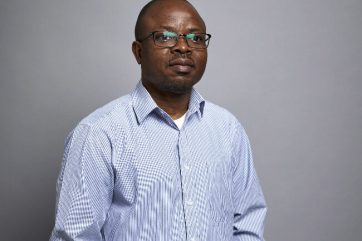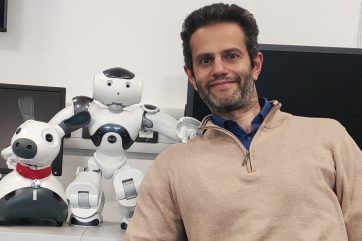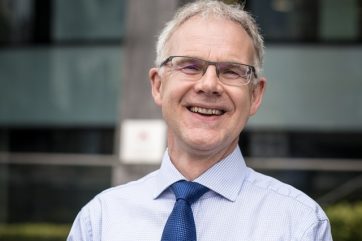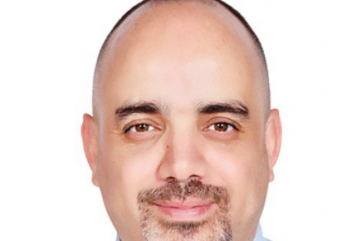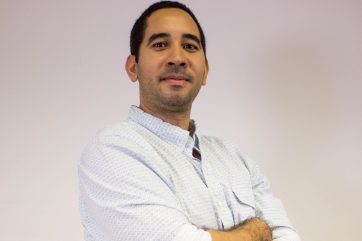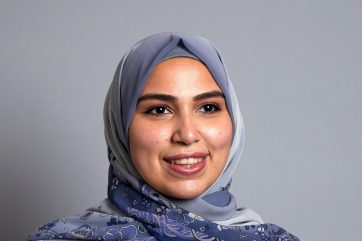Dr Princivalle talks about the impact of her research on Epilepsy
It’s another Spotlight edition!
Our Spotlight articles aim to shine a light on the people that make up the Industry and Innovation Research Institute (I2Ri). Alongside the BreakThru Research podcasts on Spotify hosted by Márjory Da Costa-Abreu, we hope this will be a great way to celebrate our successes and get to know our researchers more.
This edition, we caught up with Dr Alessandra P. Princivalle to find out a bit more about her and her work in I2Ri.
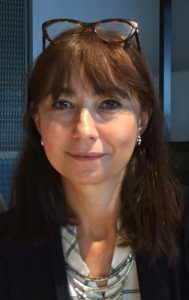
“My main ambition is to be able to translate my research from bench to a clinical environment. To bring benefit to the community which is affected by this disease and mostly focus on the epilepsy, which is pharmaco-resistant.”
Please can you tell us a bit about yourself?
My name is Alessandra. I’m a senior lecturer and active researcher in the Department of Bioscience and Chemistry, which is within the industry and innovation research Institute.
By formation I’m a neurobiologist and neuropharmacologist and I worked in Milan for several years of my life. And then I moved to England. I’ve been working on neurological disease for more than 20 years now.
My research interest is mainly focused on epilepsy, but not restricted to that.
Perhaps I can say few words about epilepsy, which is an umbrella term to describe neurological diseases with one common symptom: seizures, but they’re very different from a genetic point of view, from a physiological point of view, anatomical point of view and so forth.
The main focus of my research is to find more effective drugs to treat some forms of epilepsy which at the present are not treatable with the drugs available on the market.
What path led to your current work and working at Hallam?
I had a very unusual, if not unique path. I started as a postdoc at the Institute of Pharmacology in Milan. I worked a couple of years on a specific protein which play a major role in cortical dysplasia, which is another cause of epilepsy.
After the two years of post-doctoral position, I moved to the Institute of Neurology in Milan, where I worked several years on different types of neurological diseases. One was the spinal muscular atrophy, then I worked also on ataxia and on epilepsy, so I started to be interested and work on epilepsy over there.
And this work on epilepsy led me to a very interesting and important European collaboration, and thanks to that I went to work at the Medical School, University of Birmingham.
The first couple of times was for a short period of three months each. And over there I was working with Professor Norman Bowery, who was a worldwide recognised expert on GABA B receptor, which is a molecule playing a fundamental role in epilepsy.
When I was there, I also decided to do an English PhD as I wasn’t sure if my Italian was recognized or not. So I thought ‘I’m working on that lovely project I like, it’s not going to be a major trouble to write a PhD’, which I did, and I was very happy about that. It was rewarding, very rewarding to do that. Then my contract over there was extended a bit.
During that time, I started to look for a more permanent job. In that process of looking for jobs and doing interviews, I managed to get a senior lecturer position here at Hallam.
What is the most exciting thing about your work and what are the challenges?
Being curious. What is the consequence or why this is happening? How can we manipulate that? How can we treat that in order to help the community out there? I think the most exciting thing of the whole work is the curiosity.
There are many challenges for a researcher, first of all is finding the time, and getting your research funded which in this particular environment is truly challenging.
The only way to overcome this is mainly time management and the willingness of working out of contracted hours.
Who or what inspired you to pursue your career?
Oh yes, there was one specific person when I was a child, I was already interested in science. So much so that sometimes in the kitchen I was mixing different things to see that they were not mixing very well, or they were.
During that time I was in primary school and so lucky to go to this primary school named after Leonardo da Vinci. We had a lot of facilities that other school in Milan didn’t have.
Amongst these was a small museum with copies of his inventions. During those times I was watching the at the telly a documentary film about Leonardo’s life and I found this so very exciting, because this man was doing basically everything, every branch of science and arts research. Leonardo’s always active and curious mind made me dream.
And then a second inspirational person was my boss in Birmingham, Professor Norman Bowery. He had an absolutely brilliant mind and was a very simple, approachable, nice person.
I’ve been invited to write a book chapter talking about him and the GABBA B receptor, which is the molecule that describe his legacy.
Can you share a turning point or defining moment in your work as a researcher?
I think it was when I went to Birmingham because previously my perception was to be treated as a person who needs to learn again, which is true for us all, as they said : “live and learn”.
But when I moved to Birmingham, the lovely man that was Professor Norman Bowery let me free. I could do everything I want in terms of experiment. How to think of them, how to plan them, how to change what to do or not to do, without any check over me.
It was just an amazing feeling of scientific freedom and that was a turning point in different ways.
What advice would you give to someone who was looking to embark on a career in research?
First, do what you love. Don’t do something that you don’t love because it becomes really heavy, and hard.
Keep your enthusiasm alive, don’t stop asking questions, never. Keep a curious mind even if the experiment doesn’t come out as hypothesised.
There are ups and downs, more downs than ups, but the ups are amazing. Stay motivated, never give up.
What do you most enjoy about teaching?
When I’m teaching, I do enjoy the idea of transferring part of my knowledge to the younger generation, because then you have to leave the board to them at some point.
I also transfer the love and enthusiasm for the topic I’m teaching in that moment, this is what I love most about the teaching.
I also enjoy the curiosity to find the answer, even for a big question by sub-dividing it into small ones that can be answered bit by bit.
What are your ambitions and the next steps for the research?
My main ambition is to be able to translate my research from bench to a clinical environment. And to also be promoted at some point.
And next steps would be by taking some of my research results to the clinics so the wider community of people suffering with epilepsy can be helped.
Is there an opportunity for colleagues to collaborate with you on your research?
Yes, I am always open to collaborate with diverse researchers.
There are many aspects of epilepsy that can be helped from an analytical point of view. I’ve been working so many years on this disease that I do have a huge amount of raw data that a bioinformatician could analyse in many different way and asking different questions because they come from human patients.
Also nutrition, this is because there are a lot of scientific evidence that specific ketogenic diet may help, in particular, kids affected by epilepsy.
And it has been reported that some brain circuits are particularly affected and involved in these people not treatable by drugs. It would be nice to create a computational model of the circuit to mimic what is happening in the brain and then try to solve a part of this mess that is occurring in the brain of people affected.
What real-world impact do you hope your research will make?
To bring benefit to the community which is affected by this disease and mostly focus on the epilepsy, which is pharmaco-resistant, but it may also mean it can be extended to other types of epilepsy, maybe develop the drug with less side effects.
Because some people can keep their seizures under control with drugs. But they also have to bear a lot of not-so-nice side effects.
What do you like to do when you’re not working on your research?
When I’m not working, which is unlikely, but in here I like to chit chat with colleagues around the department and maybe find new opportunities for collaboration or for better teaching quality or other matters arising in the department.
Basically I find that chatting is pretty relaxing compared to work. This chatting could be work-related too, but it doesn’t feel like it.
Outside here, I like very much to relax. I like to read something that is not strictly science. I also like to go to the cinema and to meet with friends for drinks or dinners.
Walking in the Peak districts too, weather allowing. And also sometimes do a bit of meditation.

